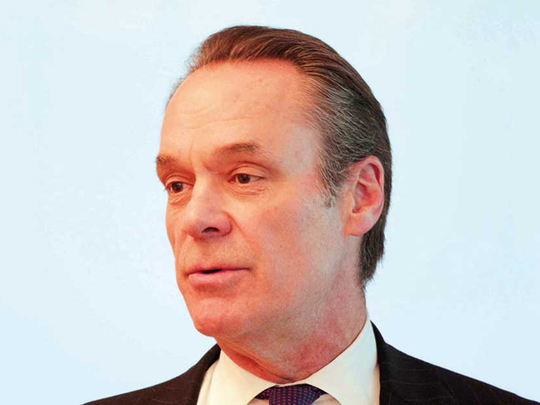
London: Citigroup is fully prepared to face the increasing prospect of a hard Brexit and the contingency plan will be fully operational by the fourth quarter of 2018, said Jim Cowles, EMEA CEO of Citi.
Cowles said the bank has a plan ready for a hard Brexit that will be focused on its European banking operations headquartered in Dublin. “We have a presence in 20 countries across the European Union and 19,000 people working there. Regardless of what happens with Brexit, Citigroup will continue to provide products and services we have been providing in both UK and EU countries and London will remain important international hub,” he said.
Cowles said, the bank has also figured out a solution for its brokerage business in the event of the potential disruption in passporting agreements between the EU and the UK following the Brexit.
“We have an entity in Frnakfurt that is regulated by European regulators. If we are faced with a situation that we no longer can serve our EU customers from London, we are fully prepared to serve our customers from Frankfurt. This entity has a licence and has adequate capital to carry on the business,” Cowles said.
One of the biggest fallouts of a hard Brexit will be that British banks can expect reduced access to the market for financial services in the 27 EU states. In the event of a full exit of UK from EU translating into UK’s withdrawal from rules of the single market could mean UK banks could lose the so called banking passporting that allows banks and other financial companies to do business in one member state of the EU and then ply their trade across the region without having to be separately authorised in each country.
If the banking passport is no longer available to British-based firms, then some operations would clearly have to shift to a location inside the EU and Citi is doing exactly that. The bank is creating 150 to 250 EU roles by either hiring new people or moving some of the existing people from London.
Frankfurt is the first choice as the new EU headquarters of its broker-dealer business, Citigroup Global Markets, which is currently based in the UK. The bank plans to convert its existing German subsidiary into an investment firm (broker-dealer).
“I believe this is a prudent step to ensure that we will be able to continue to serve our clients throughout the EU from March 2019, regardless of the outcome of the Brexit negotiations. While we will be moving forward with Frankfurt as the headquarters of our EU broker-dealer, we will, of course, continue to monitor future political, legal and regulatory developments that may affect our decisions,” said Cowles.
Citi is also likely to create more positions other European cities such as Amsterdam, Dublin, Luxembourg, Madrid and Paris across its private banking, treasury and trade solutions, corporate and investment banking and capital markets divisions.
Stop gap
Commenting on reports of big US banks drawing up ‘stop gap, Brexit plans, that use London branches of their EU subsidiaries to smooth the process of building new headquarters on the continent to avoid moving hundreds of jobs out of London, Cowles said Citi is fully prepared to hire new staff and or move required staff from London to Frankfurt.
The European Banking Authority warned last month that London cannot retain access to the single market after Brexit by using “shell companies” based in the bloc. But banks still lack clarity on exactly what functions can remain in London as opposed to the EU and the number of people that this will affect. use London branches of their EU subsidiaries to smooth the process of building new headquarters on the continent.












